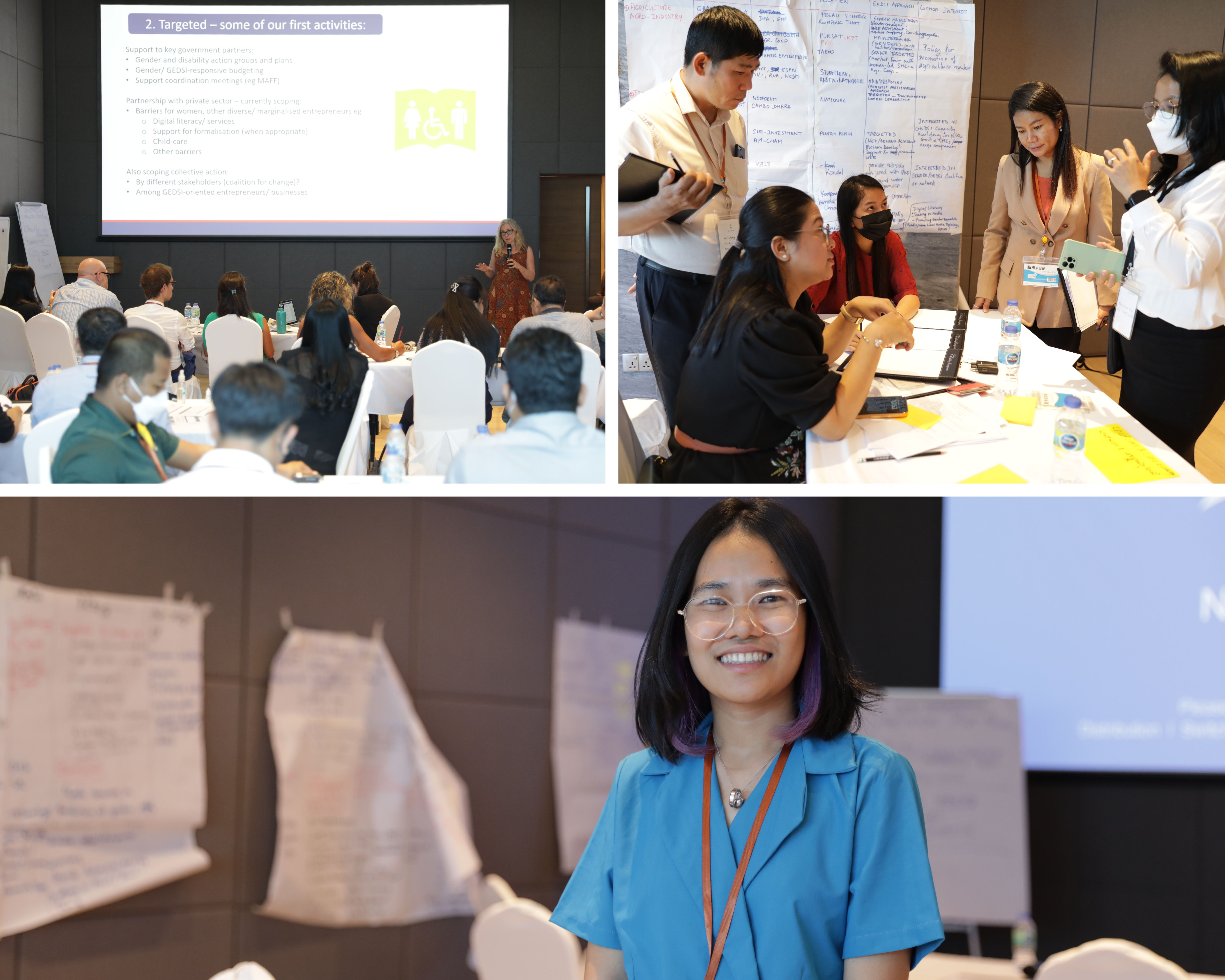By Chakriya Khiev
Gender Equality, Disability, and Social Inclusion (GEDSI) is an issue that affects every sector and level of our society. Equality and inclusion are essential to successfully addressing economic barriers in Cambodia and contributing to a resilient economy.
This is why it’s so important to integrate it across organisations and networks.
One of CAPRED’s key initiatives is to promote and incorporate GEDSI in all our collaborations between government, development partners and other stakeholders.
To this end, CAPRED held a GEDSI stakeholder consultation workshop in Phnom Penh with over 60 participants from development organisations and the private sector. The program wanted to find potential partners and gather best practices and learnings to help strengthen our own strategic thinking and GEDSI approach.
It was a successful workshop with lots of positive feedback and suggestions.
“My institution has just developed a new GEDSI policy called ‘Twin Track Approach’, but we haven’t yet implemented it,” said Phat Sopha, a Compliance and Quality Specialist from Good Return.“Based on what I learnt today, I will apply this experience into our new policy.”
Sopha suggested forming a GEDSI network, where members can meet and work together easily.
Participants shared experiences and lessons learnt about GEDSI integration or promotion in their different sectors. They discussed ways to collaborate for maximum impact, avoid duplication and make the best use of resources during the next five years.
They also looked at GEDSI in varying scenarios such as recruiting GEDSI specialists, business formalisation, digital literacy, access to finance, childcare and the care economy, and the potential for collective advocacy to amplify messages for change.
“Some institutions working on social issues in Cambodia do not include GEDSI in their policy as they don’t think it is a big issue,” said Cheath Chansolinda, Gender and Advocacy Coordinator at Banteay Srei. “I feel positive to see that CAPRED integrates GEDSI in their policy approach because gender is a cross-cutting issue that every sector or institution needs to deal with to amplify its voice. If we want to solve the social problems, we need to solve the gender problem as well.”
There is a diverse and vibrant sector working towards gender equality and inclusion in Cambodia and it was important for CAPRED to hear those voices. Development partners, civil society, private sector and business associations, and the research community all have great insights and are doing strong work in GEDSI.
“The workshop gave us a lot of good information and ideas,” said Di Kilsby, CAPRED’s GEDSI Lead. “It will help us find effective approaches, major challenges and existing work that we can support or build upon. It will also help coordination and to limit duplicating work that others are already doing. We are very grateful to all those who came, and it will be great to stay in touch.”
GEDSI has been a central priority for CAPRED from the start. We want to ensure equal access and contribution from people of all backgrounds, including woman and gender diverse people, those with disability and people facing socio-economic disadvantages and discrimination.
Read more about GEDSI in CAPRED.



 English
English